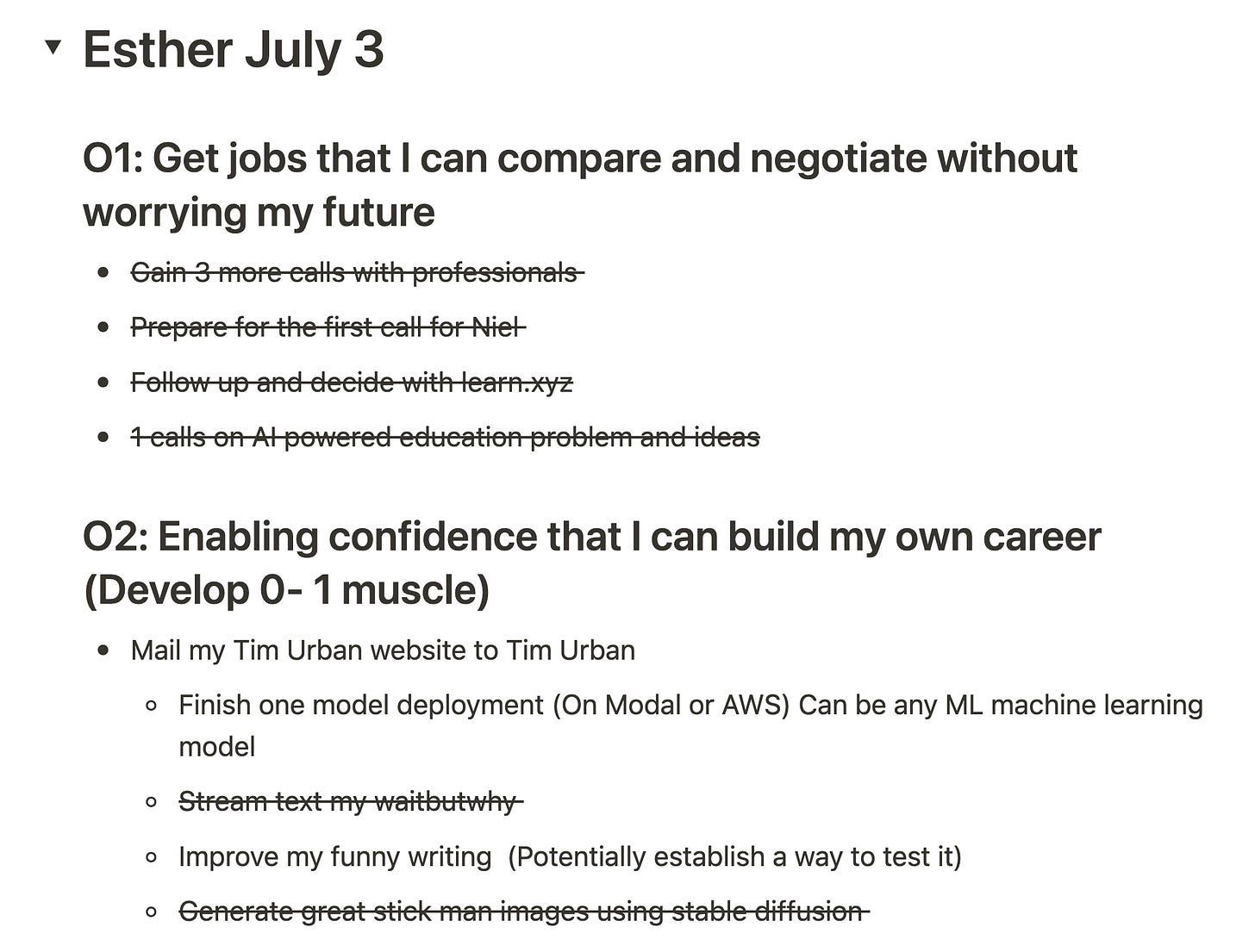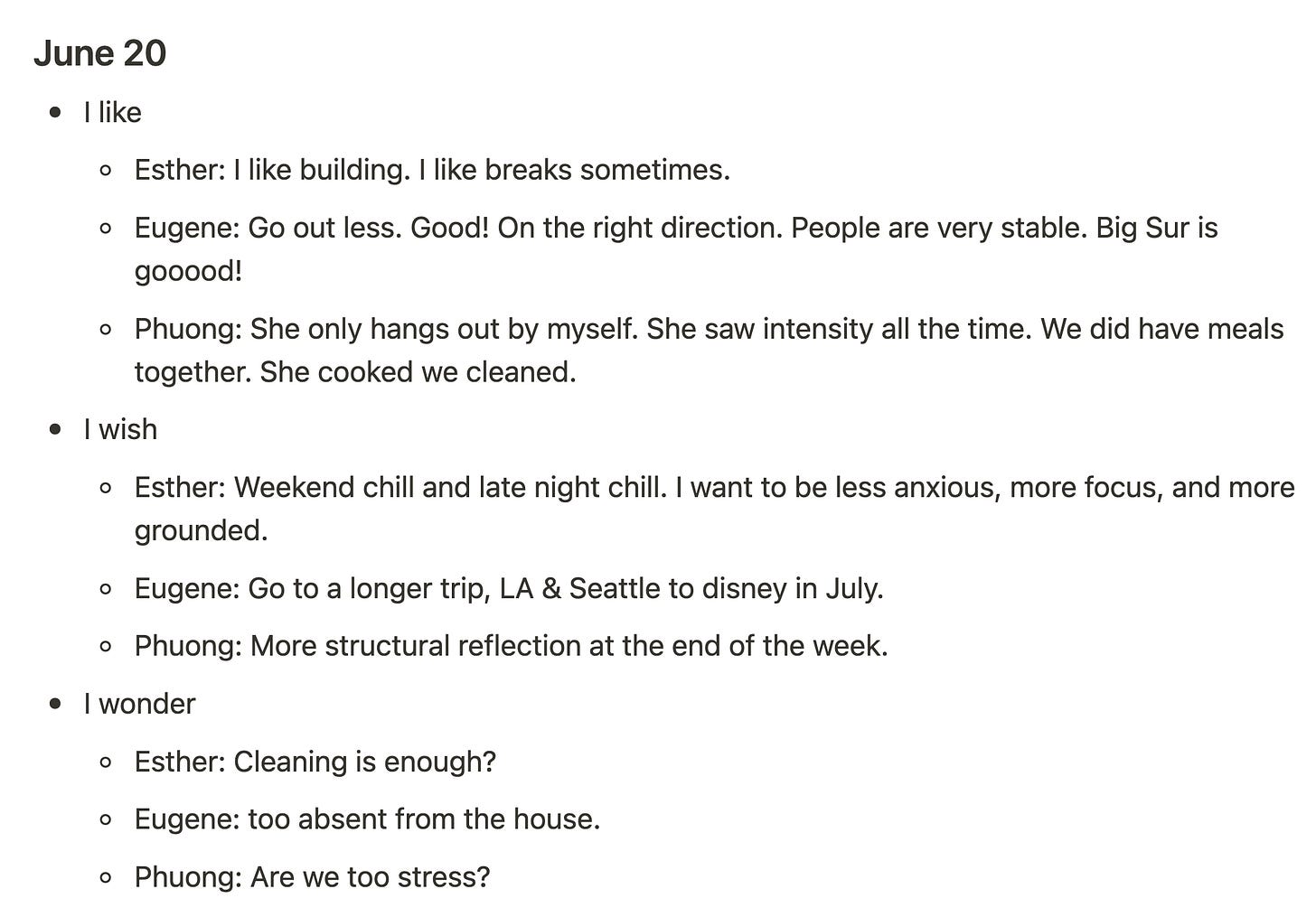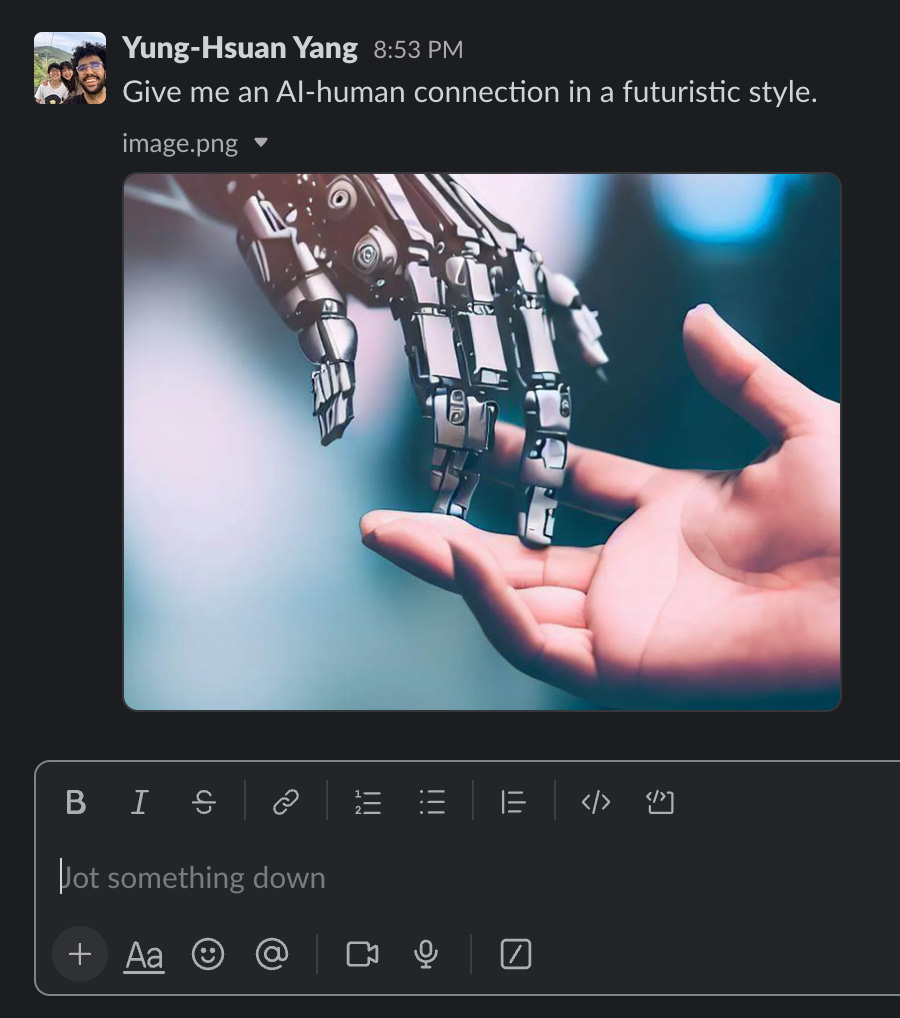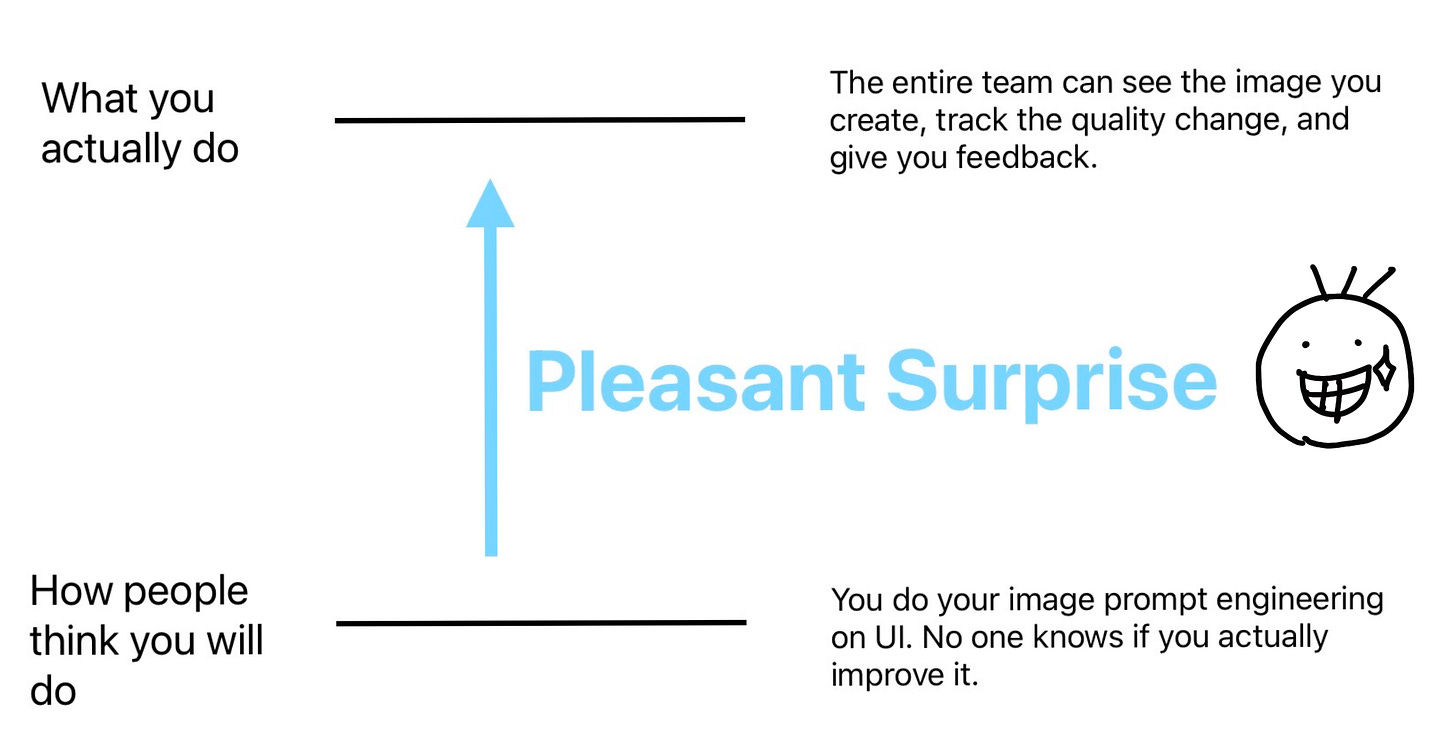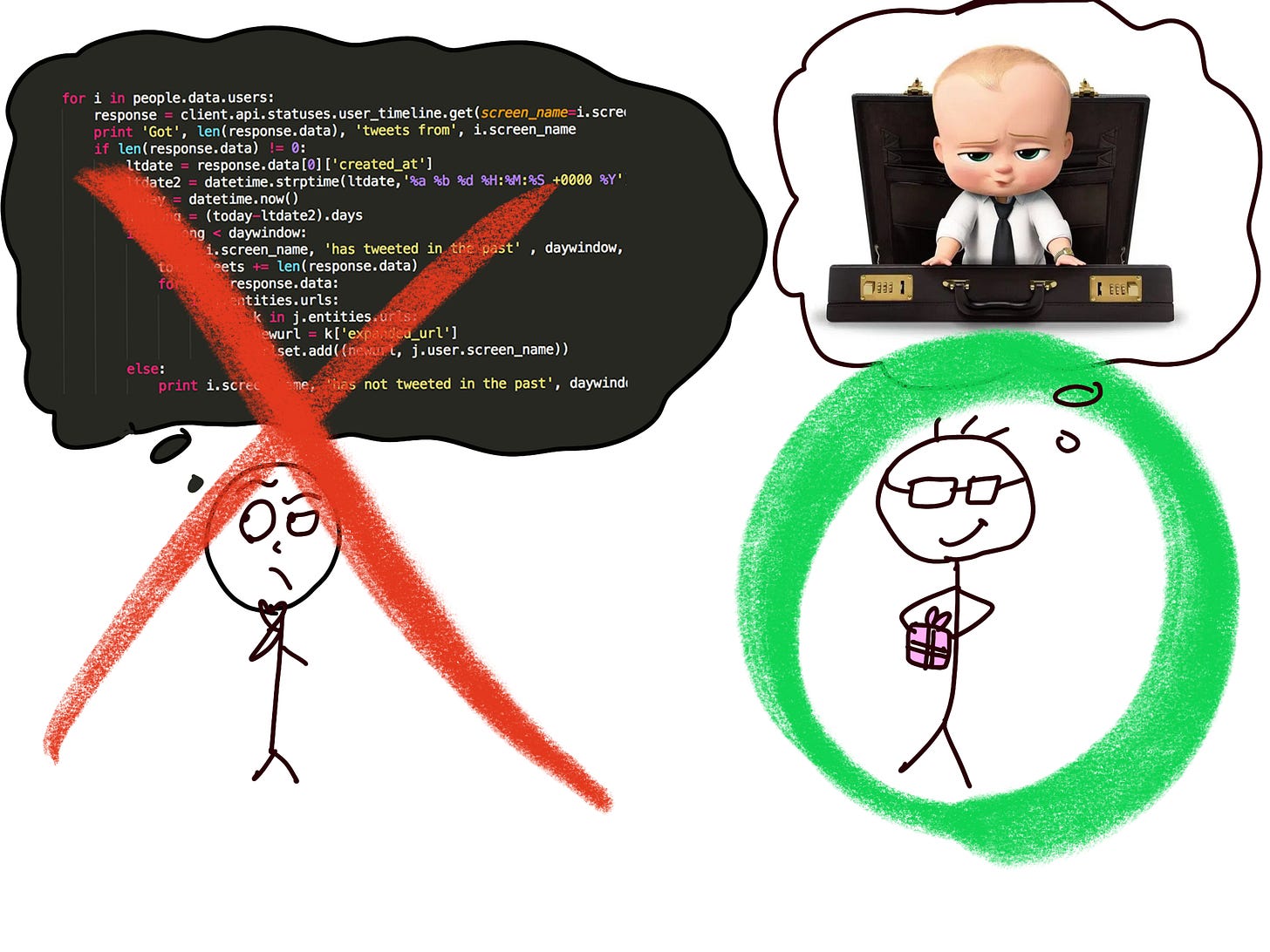If you've read "Behave Like a Normal Employee," you probably know it's difficult for me to sit like one for 8 or 9 hours a day. But it's only my first week of work.
Compared to big tech companies, managers don't care as much about their employees as founders do in startups. Painting an image of capability is quite important in the beginning. I also want to earn enough trust to be flexible in the way I work, such as my work hours. The followings are my strategies, and I'll update you as I go.
Create Small Wins
Before my first day of work, I had already decided that my goal for the week was not just to finish tasks, but to impress my boss. Your boss will always ask you to do many things, but which ones matter the most? When setting goals, I try to choose the simplest ones that I am confident I can achieve while creating the biggest value for my company.
I got lucky because, as an LLM engineer, my first task was to create better prompting outputs. The initial prompts that my company had were very long, and the output was generic and boring. They were pressuring AI to do too much! I simply used a one-sentence prompt to resolve a problem that they had been unable to solve for a week. By the end of the week, I was very confident that I had exceeded the initial quality by a large margin and achieved 72% satisfaction from my team. When we were in our last week of OKRs, my founder said, "Great job!"
Bring Structural Transparency
In a company, especially a startup, having a valuable skillset is not the only important factor. Since startups can be disorganized, I introduced a lot of structure to increase transparency in my work. For example, I implemented the same structures I used in my previous hacker house (powerhouse) into my company, such as daily stand-up meetings, weekly OKRs, and weekly feedback sessions using the "I like, I wish, I wonder" template.
Currently, our startup does not have any weekly 1 on 1 feedback sessions, and I guess I’m the first one to request it from my founder. To prevent him from feeling like it's a waste of time, I proposed that it be used for feedback and goal setting for the next week.
This week, my founder asked me about my "I like, I wish, I wonder" template again and decided to implement it throughout the entire company. He was impressed with the structure I had in place and said, "This will save me a lot of time as a manager. You are very structured in your work, but you're still early in your career, aren't you?"
Deliver a Pleasant and Visible Surprise
To gain trust in my consulting training, I have learned that it's important to exceed people's initial expectations. I have found that people often don't fully appreciate my efforts unless I show them, particularly through the use of visual aids.
To achieve this, I frequently take screenshots, screen recordings, and stick papers on the wall of my work to demonstrate my progress (bringing structural transparency) and deliver unexpected surprises. For example, I created a Slack bot that adds all the image prompts and AI-generated output, allowing the entire team to see the images I generate.
It is a smart surprise because it is super simple for me to create, but now all prompts and image quality can be tracked back, and it is visible to the entire team.
I consider my solution to be a sweet spot between effort and effectiveness. If I were to create an entire front-end gallery to display all the images, it would take me a long time. However, with this Slack bot, I only need an hour or two to set everything up. My founder is pleased with the quick solution.
Another example of my approach is my goal for this week: Finish my LLM pipeline and have a local API that outputs text. I set up the entire API output today (which is only Wednesday), so my team can use it for deployment. Although the pipeline is missing some functions, (1) having a barely working complete version is a great engineering practice, better than having a pretty thing that is only halfway done, and (2) I created the illusion that I delivered what they wanted much faster than they expected. This not only wins their trust but also boosts my confidence.
The next idea I will implement a strategy is to avoid showing too much work in progress. I will only deliver when I am almost done with some small while pleasant surprises.
Slow changes change the boss’s mind
As you know, I hate sitting with everyone for so long every day, so I started sitting somewhere else in the same building. I came back often to show my face and deliver my progress, showing my boss that I'm not slacking off. Gradually, I cultivated a mentality that I'm still working but just not in front of their sight. So I can start to feel comfortable taking a break whenever I want to and earn my freedom.
This week, I also tried going to a yoga class in the afternoon. My boss didn't say anything but asked me, "How is your work?" when I came back, so I knew that I would need to prove my productivity if I want this freedom. First, I stayed in the office later than everyone else. Second, I worked at home and immediately delivered another win the next day. I plan to do this multiple times, so in the future, he will feel comfortable with me exercising in the afternoon because he will associate it with wins and me staying later to compensate for the work.
Ending note
Overall, winning the trust of new bosses can be a fun game to play. It's not just about proving you're a skilled engineer, but also demonstrating that you're responsible, reliable, transparent, and intelligent in the ways you add value to the project or team.
In short, I do all these for my yoga class la!



